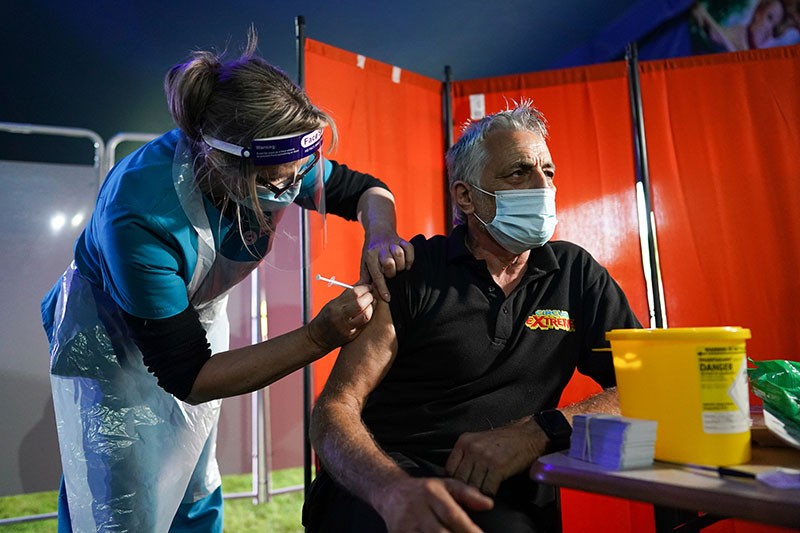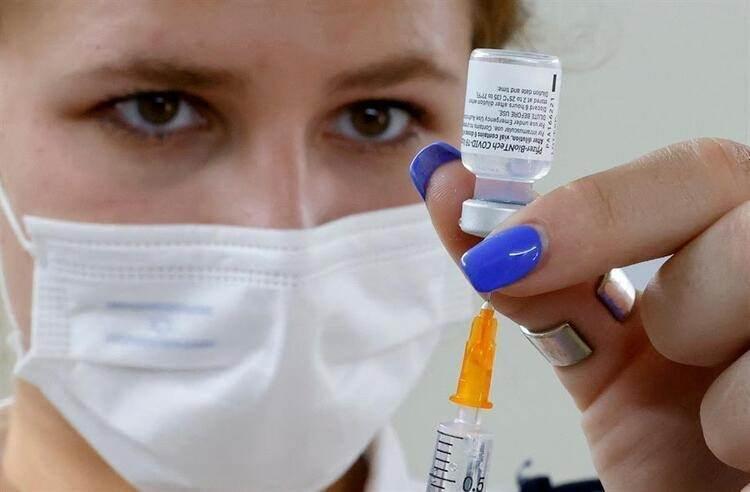The vaccines’ effectiveness against overall infection drops to 66%, but protection against serious illness and death remains very high.
The extremely transmissible Delta variant of the coronavirus has become the dominant strain of the disease-causing virus in numerous countries, and with that change, the effectiveness of the Covid-19 vaccines has been impacted, as well. The question is, by how much?
Three vaccines have been authorised for use in the United States — Pfizer, Moderna, and Johnson & Johnson — with the former having just received full FDA approval.
Pfizer’s and Moderna’s vaccines use messenger RNA to ‘teach’ the body how to defend itself against the coronavirus, and it was this specific type of vaccine which was studied in the US.
According to the results of a large-scale study of US health workers, published on August 24, the overall effectiveness against infection when the Pfizer and Moderna Covid-19 vaccines were used dropped from 91% before the Delta variant became dominant in the US to 66% afterwards.
In the study, thousands of workers across six states were tested weekly and additionally upon onset of Covid-19 symptoms, allowing researchers to estimate vaccine efficacy against symptomatic and asymptomatic infection.
By comparing the rates of infections among vaccinated and unvaccinated people and the amount of time they were tracked, vaccine effectiveness was estimated at 91% in the initial study period of December 14, 2020 to April 10, 2021.
But during weeks in the run-up to August 14, when the highly contagious Delta variant became dominant in the country, the vaccines’ effectiveness dropped to 66% against infection.

The authors of the study said there were a number of caveats to keep in mind, including that the protection from vaccines could be eroding over time anyway. They also noted that the 66% estimate was based on a relatively short study period with relatively few infections.
The diminishing effectiveness of vaccines over time, particularly against the Delta variant — which causes an exponentially higher viral load in the human body — has been confirmed with a comprehensive study in the UK, whose overall findings align with those in the US study.
“Although these interim findings suggest a moderate reduction in the effectiveness of Covid-19 vaccines in preventing infection,” the US study’s authors said, “the sustained two-thirds reduction in infection risk underscores the continued importance and benefits of Covid-19 vaccination.”
The vaccines’ protection against severe disease appears more stable against the Delta variant, exceeding 90%, according to a recent study of patients in New York conducted by the Centers for Disease Control.
Another CDC study of Los Angeles patients, which was carried out from May 1 to July 25, showed that unvaccinated people were 29.2 times more likely to be hospitalised with Covid-19 than vaccinated people — corresponding to efficacy of about 97%.
The UK study, meanwhile, showed that both the Pfizer and AstraZeneca vaccines offered moderately reduced effectiveness over time when looking at any Covid-19 infection, but two doses of either vaccine still maintained effectiveness against severe illness or death.

Though Pfizer’s product is the only mRNA vaccine being offered in Malaysia, it comprises the majority of the vaccine stocks secured by the government. Studies in the UK on the AstraZeneca vaccine have also shown that while its effectiveness is lower against any infection where Delta is the dominant strain, much like the mRNA vaccines, it maintains high levels of effectiveness against hospitalisation or death because of Covid.
A number of studies have now concluded that vaccine efficacy drops against Delta, even though the exact level of that drop differs from study to study.
Reports from AFP and the CDC contributed to this article.
"ExpatGo welcomes and encourages comments, input, and divergent opinions. However, we kindly request that you use suitable language in your comments, and refrain from any sort of personal attack, hate speech, or disparaging rhetoric. Comments not in line with this are subject to removal from the site. "





















